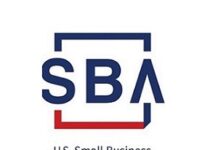PROVIDENCE – Casino gaming in the Bay State will likely negatively affect revenue for both Rhode Island’s casino operators and the state of Rhode Island itself, according to a new report from the R.I. Public Expenditure Council.
The RIPEC report – Table Gaming in the Ocean State – was released Wednesday and analyzed the current structure of gaming in the Ocean State as well as the effect gaming in Massachusetts will have on Rhode Island’s revenue.
“It is clear that the state can no longer rely on gaming revenues to support the same share of government services once casinos open in Massachusetts,” said the RIPEC report.
The report went on to add that lawmakers should examine proposed legislation to see whether bills provide the operators of Twin River and Newport Grant the “opportunity to meet the challenges of increased cross-border competition.”
Currently, lottery revenue – including games, Keno and video lottery terminals – accounts for roughly 12 percent of the state’s general revenue, yet budget projections assume decreasing lottery receipts starting in 2015, based on the impact of Massachusetts casinos.
Rhode Island voters must pass a referendum this fall for the state’s two slot parlors – Twin River and Newport Grand – to allow casino gaming.
“The result of the referendum, and, specifically, the terms and conditions of the expansion will have far-reaching impacts on the state’s revenues and economy,” said the RIPEC report. Both the citizens of Lincoln and Newport, as well as the state, must pass the referendum.
The RIPEC report insisted that Rhode Island take a proactive approach to its economic future.
“The state can ill afford to jeopardize the survival of the two facilities by imposing an unsustainable effective tax rate that simply boosts revenues in the short-term, while ignoring long-term implications,” said the report adding that “thoughtful actions taken by the state today will allow Rhode Island to direct its own future instead of reacting to events beyond its control.”
For the full report, visit www.ripec.org.













This story’s a joke, right? This can’t be a serious news story if it concerns RIPEC, its issuing of a report, and a recommendation based on its report. The RIPEC people couldn’t point out a sidewalk if they tripped over it.
Let me be mercifully brief…
RIPEC, then under Gary Sasse, who opposed a world-class destination resort casino in 2006 and, instead, projected that simply expanding Twin River and Newport Grand would increase revenues by 20%. RIPEC and Sasse were wrong.
RIPEC and Sasse estimated RI would get the jump on Massachusetts by expanding our two slot parlors and that’d prevent Massachusetts from approving casinos. The bluff didn’t quite pan out. RIPEC and Sasse were wrong.
Then Governor Befuddled Carcieri spent $20K of taxpayer money for a friend to do an “independent, impartial study” that trumpeted the trash that RIPEC and Befuddled Carcieri continued to peddle to Rhode Islanders: that upgrading our slot parlors would freeze Massachusetts from approving casinos. RIPEC and Befuddled were wrong.
Note: Looking back, that was a policy precursor to the disastrous 38 Studios scandal. “Cooking” public policy to achieve political results. RIPEC was a partner in both.
Here’s the facts, folks…
Rhode Island is going to be slammed. We have two slot parlors sandwiched between a state hosting the world’s two largest destination resort casinos, and another state entering the casino and slot parlor business that just happens to boast New England’s largest population.
Then, those MA casinos will have 25% gaming taxes — the one SEMass slot parlor will be taxed at 40% — and we can all assume that MA policymakers will site one casino in SEMass and the slot parlor in SEMass — maybe in Plainville at the intersections of Rt. 1A and Rt. 495 — to go head-to-head with Twin River.
Then, MA will recapture much of its residents’ spending at the CT casinos and our slot parlors.
Then, MA facilities will cannibalize a significant portion of RI spending at our own slot parlors. Bear in mind, the amenities at the MA casino and slot parlor — with the lower tax rates — will lure a lot of RI residents who are tired of playing in those filthy, dirty, smoke-filled slot parlors of our.
Finally, congratulations to RIPEC and Gary Sasse, the Greater Providence Chamber of Commerce, the Rhode Island Hospitality and Tourism Association, Taco Man, RDW, Befuddled Carcieri, Sculos at Twin River and Newport Grand, the stooge who did Befuddled’s “prove me right” study, and all the rest of the enablers who condemned one fleeting chance to compete legitimately with MA on gaming, entertainment and tourism and who, instead, chose to close their eyes and mislead and sell-out the taxpaying public so that they could preserve their own special little revenue flow at our expense.
Congrats to every business person who voted against our state having a world-class casino six years ago. The results are about to unfold — and it won;t be pretty and it’ll make the revenue loss from 38 Studios resemble a trickle.
I just read the report. It appears that RIPEC officials have no knowledge of Massachusetts casino plans, any more than they had insight into Rhode Island’s vulnerability to MA gambling expansion back in 2006.
Here’s what the RIPEC report stated:
Massachusetts Casino Impact
The three scenarios are:
Best Case: A casino at Suffolk Downs in East Boston; a casino in New Bedford and a racino at Raynham Park in Raynham; and one of the three potential facilities in western Massachusetts.
Worst Case: A casino at Foxboro; a casino in New Bedford and a racino at Plainridge Racecourse in Plainville; and one of the three potential facilities in western
Massachusetts.
Likely Case: A casino at Suffolk Downs in East Boston; a casino in Middleboro and a racino at Plainridge Racecourse in Plainville; and one of the three potential facilities in
western Massachusetts.
First, Middleboro is out of the picture. The town is suing the Mashpee Wampanoag Tribe as the tribe has abandoned plans for Middleboro completely. They abandoned those plans TWO YEARS AGO!
Ironically, tomorrow, residents of Taunton are voting on the Wampanoag Tribe’s proposed casino in that city. But the tribe needs to have that land taken into trust to build a casino, and it is unlikely Congress is going to change the law to allow that to happen.
So, the real potential casino sites are: two in New Bedford; one in Fall River; and one in Bridgewater.
Secondly, as far as the MA slot parlor goes, there are at least two tracks in SEMass competing for that license: Plainridge Racecourse in Plainville, which the report mentions, and Raynham Park, the former greyhound track in Raynham.
How the report concludes Plainville is the more likely slot parlor site is mystifying.
Bottom line: Another haphazard and ridiculously inept report by RIPEC.
P.S. The only site they got right is Region A’s Suffolk Downs in Boston, although there is another proposed site in that region in the city of Milford on Rt. 495.
As far as Foxboro is concerned, the residents elected two new anti-casino selectmen in the May election, making the board 4-1 against a casino in the town. Perhaps RIPEC should note that the proposed Foxboro casino proponents — Bob Kraft and Steve Wynn — ended that casino dream the day after the town election.
Does RIPEC ever get anything right?